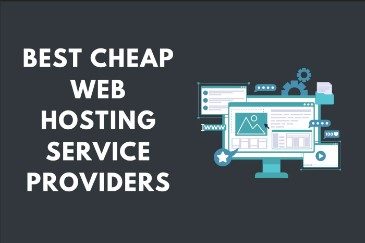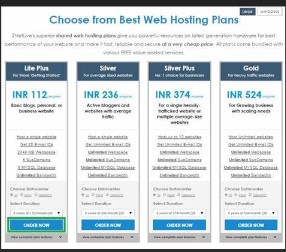Buy Hosting Service
In the competitive landscape of online presence, selecting the right hosting service can profoundly influence the success of your digital endeavors.
This article explores the critical aspects to consider when choosing a hosting service and how it impacts your website’s performance and reliability.
– The Importance of Choosing the Right Hosting Service
– Your hosting service determines the foundation of your website’s performance and accessibility, impacting user experience and search engine rankings.
– Opting for the appropriate hosting type can enhance site speed, security, and overall reliability, crucial for maintaining a competitive edge in your industry.
Understanding Different Types of Hosting Services
Choosing the right hosting service begins with understanding the various options available and their respective advantages.
– Shared Hosting
– Pros and Cons of Shared Hosting
– Shared resources make it cost-effective for beginners.
– Limited control and potential performance issues due to shared server environments.
– Suitable Use Cases for Shared Hosting
– Ideal for small websites, blogs, and startups with moderate traffic and limited technical demands.
– Businesses testing new ideas or on a budget can benefit from its affordability and ease of setup.
– VPS (Virtual Private Server) Hosting
– Benefits of VPS Hosting Over Shared Hosting
– Offers dedicated resources and better performance compared to shared hosting.
– Scalability and customization options without the expense of a dedicated server.
– Ideal Scenarios for VPS Hosting
– Growing businesses needing more control and flexibility over server resources.
– Websites experiencing moderate to high traffic that require consistent performance and security.
– Dedicated Server Hosting
– Advantages of Dedicated Servers
– Provides exclusive use of physical server hardware for enhanced performance and security.
– Full control over server configuration and resources.
– When to Opt for Dedicated Hosting
– Large enterprises and high-traffic websites requiring maximum performance and reliability.
– Applications demanding stringent security measures and compliance standards.
– Cloud Hosting
– How Cloud Hosting Works
– Utilizes multiple servers working together as a single entity to balance load and maximize uptime.
– Offers scalability by allowing resources to be dynamically allocated based on demand.
– Advantages of Cloud Hosting for Scalability
– Ideal for businesses experiencing unpredictable traffic spikes or rapid growth.
– Reduces costs by paying only for resources consumed, making it efficient for startups and seasonal businesses.
Key Factors to Consider When Buying a Hosting Service
When evaluating hosting options, several critical factors can influence your decision-making process.
– Performance and Speed
– Importance of Server Resources and Uptime Guarantees
– Adequate CPU, RAM, and storage ensure fast loading times and smooth user experience.
– High uptime guarantees (e.g., 99.9%) minimize website downtime and maintain accessibility.
– Impact of Server Location on Website Speed
– Proximity to your target audience reduces latency and improves page load times, enhancing user satisfaction and SEO performance.
– Security and Reliability
– Essential Security Features and SSL Certificates
– SSL certificates encrypt data transmitted between the user’s browser and your server, ensuring secure transactions.
– Firewalls, DDoS protection, and malware scans safeguard against cyber threats and unauthorized access.
– Backup and Disaster Recovery Plans
– Regular backups and robust disaster recovery protocols prevent data loss and minimize downtime in case of server failures or emergencies.
– Scalability and Flexibility
– Options for Scaling Resources as Your Business Grows
– Scalable hosting plans allow for seamless upgrades as your website traffic and resource demands increase.
– Flexibility in adding or removing resources ensures optimal performance and cost efficiency based on current needs.
Evaluating Top Hosting Providers
To make an informed decision, comparing leading hosting providers based on specific criteria is essential.
– Provider A: Features and Pricing
– Overview of Services Offered
– Hosting plans, server types (shared, VPS, dedicated), and additional features (e.g., free domain, unlimited bandwidth).
– Customer Support Quality and Reviews
– Accessibility of support channels (live chat, phone, email) and responsiveness to technical inquiries.
– Provider B: Unique Selling Propositions
– Comparison of Performance Metrics
– Benchmarking server speed, uptime records, and performance under load.
– User Feedback and Satisfaction Ratings
– Reviews and testimonials highlighting user experiences with reliability, customer service, and overall satisfaction.
– Provider C: Specialized Features and Add-ons
– Value-added Services and Benefits
– Additional features like website builders, e-commerce integration, and security enhancements.
– **Performance Benchmarks and Reliability
– Performance tests, uptime guarantees, and scalability options to meet diverse business needs.
How to Choose the Right Hosting Plan
Selecting the best hosting plan requires aligning your website’s requirements with available options.
– Assessing Your Website Needs and Traffic Requirements
– Understanding Bandwidth and Storage Requirements
– Estimating data transfer needs and disk space for current and future content growth.
– Predicting Future Growth and Resource Needs
– Evaluating scalability options to accommodate increased traffic, transactions, and data storage demands.
– Budget Considerations and Cost-Effectiveness
– Pricing Models and Contract Terms
– Comparing pricing tiers (monthly, annual) and promotional offers (discounts, free trials).
– Balancing Features with Budget Constraints
– Cost-benefit analysis to prioritize essential features (performance, security) within allocated budget limits.
Setting Up Your Hosting Service
After selecting a hosting plan, setting up your hosting service involves several key steps.
– Step-by-Step Guide to Purchasing Hosting
– Selecting the Best Plan for Your Requirements
– Choosing a hosting type (shared, VPS, dedicated, cloud) based on performance needs and budget.
– Completing the Purchase and Registration Process
– Registering a domain name (if applicable) and configuring hosting account details.
– Configuring Your Hosting Account
– Setting Up Domain Name and DNS Configuration
– Linking your domain name to the hosting server using DNS settings for seamless website accessibility.
– Installing CMS or Website Builder
– Deploying content management systems (e.g., WordPress, Joomla) or website builders to create and manage website content.
Optimizing Your Hosting Experience
Enhancing your hosting environment ensures optimal performance, security, and user experience.
– Performance Optimization Techniques
– Implementing Caching and Content Delivery Networks (CDNs)
– Utilizing caching plugins and CDN services to accelerate page load times and improve overall site performance.
– Fine-tuning Server Settings for Better Performance
– Adjusting server configurations (e.g., PHP versions, server-side caching) for optimal resource utilization and responsiveness.
– Security Measures and Best Practices
– Configuring Firewalls and Regular Security Audits
– Setting up firewall rules and conducting periodic security audits to identify and mitigate potential vulnerabilities.
– Protecting Against Malware and Cyber Threats
– Installing security plugins, monitoring suspicious activities, and implementing encryption protocols to safeguard sensitive data.
Customer Support and Maintenance
Effective customer support and ongoing maintenance are crucial for managing your hosting service.
– Accessing Customer Support Channels
– Evaluating Support Quality: Live Chat, Phone, Email
– Assessing response times, expertise of support agents, and availability of 24/7 technical assistance.
– Availability of Technical Support and Response Times
– Ensuring prompt resolution of issues related to server downtime, performance degradation, or security incidents.
– Regular Maintenance and Monitoring
– Checking Server Health and Performance Metrics
– Monitoring server uptime, resource usage (CPU, RAM), and network latency to detect potential issues proactively.
– Updating Software and Security Patches Regularly
– Applying software updates, security patches, and firmware upgrades to mitigate vulnerabilities and enhance server stability.
This comprehensive guide equips you with the knowledge and considerations necessary to make an informed decision when purchasing a hosting service.
By understanding the nuances of each hosting type, evaluating key factors, and implementing best practices, you can optimize your online presence for performance, reliability, and scalability.





